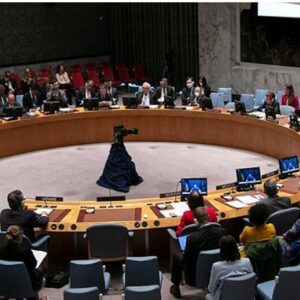“No cancer you be is the most common cancer in France and represents the leading cause of cancer death in women. writes Santé Publique France. On average, there are 60,000 new cases per year and 12,000 deaths over this same period. If the median age of diagnosis is around 63 years, a screening is essential to limit mortality from this disease. Indeed, “detected early, it is a cancer with a good prognosis, whose survival rate remains stable”adds the National Cancer Institute.
If medical care is essential to determine adequate treatment and support for the disease, other factors can alter the quality of life. Indeed, according to researchers from Inserm and several French and Swiss universities, socio-economic status has “a major and lasting impact”. Their results are published in the Journal of Clinical Oncology.
Social inequalities impact the quality of life of women who have had breast cancer
To arrive at these results, the researchers based themselves on data from the Canto study which analyzes the “chronic toxicities of anticancer treatments in patients with localized cancer”. In total, this represented a panel of 5,900 women. The latter were treated for early breast cancer, which did not have metastasis.
Over two years, researchers examined five areas related to quality of life. In particular, we could list tiredness, general condition, psychological state, sexual health and side effects linked to treatments. The experts had different data (level of study, income, etc.) allowing them to estimate the socio-economic level. The researchers thus created a score to assess inequalities. “0” was a level with no inequalities.
Breast cancer: researchers call for taking into account the socio-economic environment in follow-up
Researchers found that when breast cancer was diagnosed, “the inequalities in quality of life between the two socio-economic extremes are notable, with a score of 6.7”. Experts specify that with the evolution of the disease, these inequalities have become more pronounced, “the score increases to 11 during treatment, then remains at 10 two years after diagnosis, i.e. at a higher level than when the diagnosis was announced”, explains the researchers.
In a press release, José Sandoval, oncologist at the Department of Oncology at HUG details: “Having the time, money and access to information to take care of yourself and find support resources and better manage Side effects physical and psychological illness will probably be easier for women of high socio-economic status than for, for example, a single mother with a low income, without care for her children.”
Also, the researchers note that “equal access to care is therefore not synonymous with the absence of inequality”. The latter specify that “the socio-economic context can have a major impact on the state of health, in the same way as biological characteristics”. They call for these factors to be taken into account when supporting a patient.
Sources :
- After breast cancer, social inequalities widen – National Institute of Health and Medical Research (Inserm) – Press release – 06/18/24
- The magnitude and temporal variations of socioeconomic inequalities in the quality of life after early breast cancer: results from the multicentric French CANTO cohort – Journal of Clinical Oncology -18/06/24











